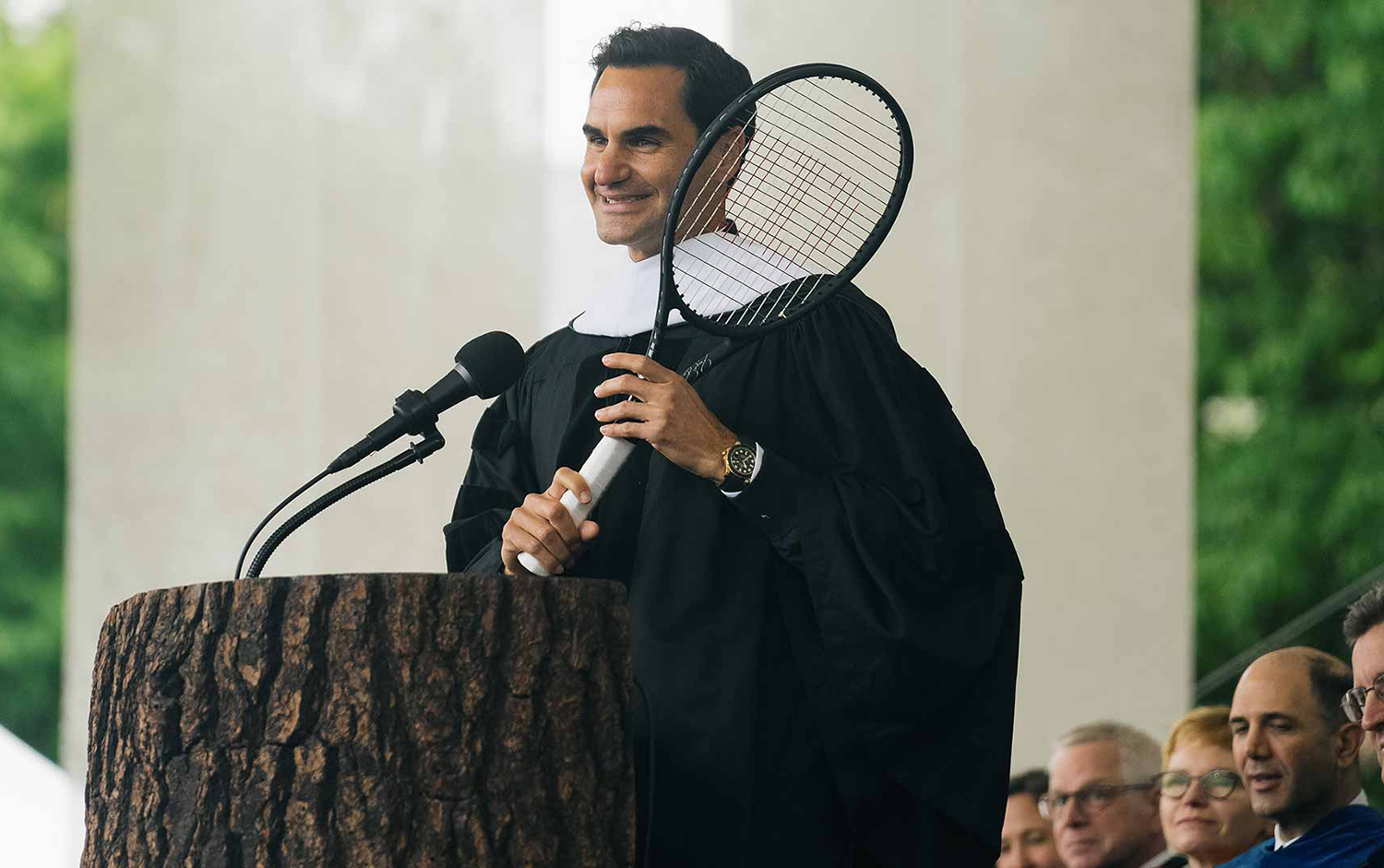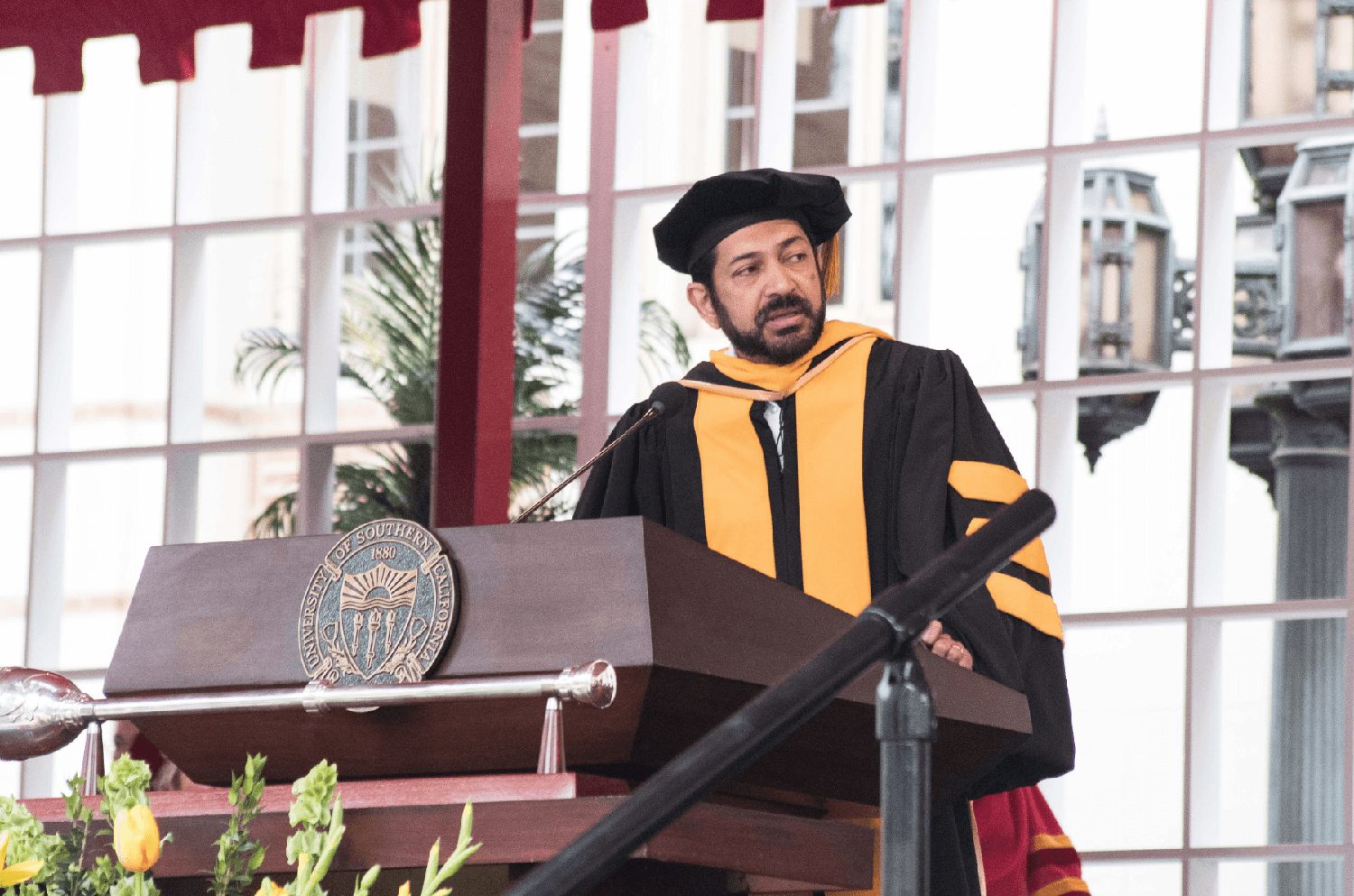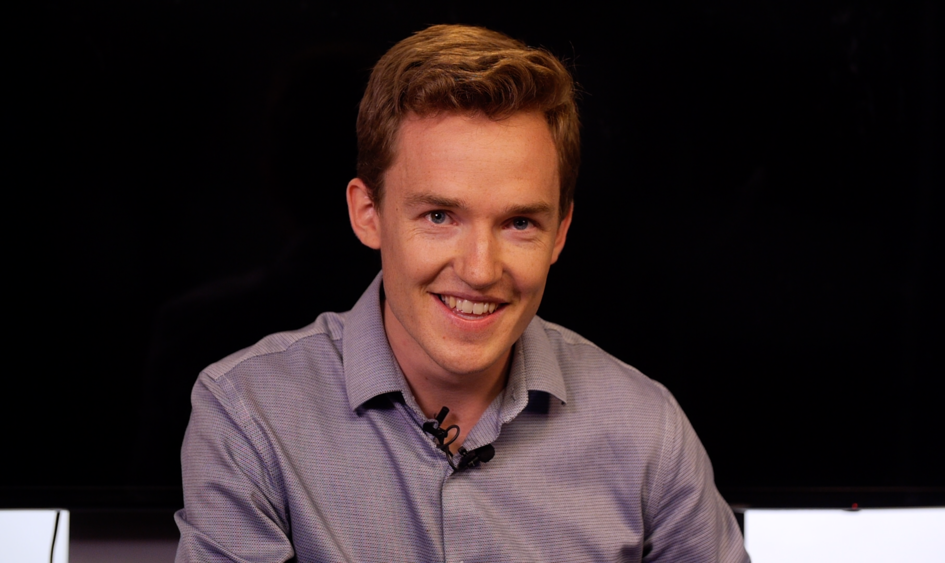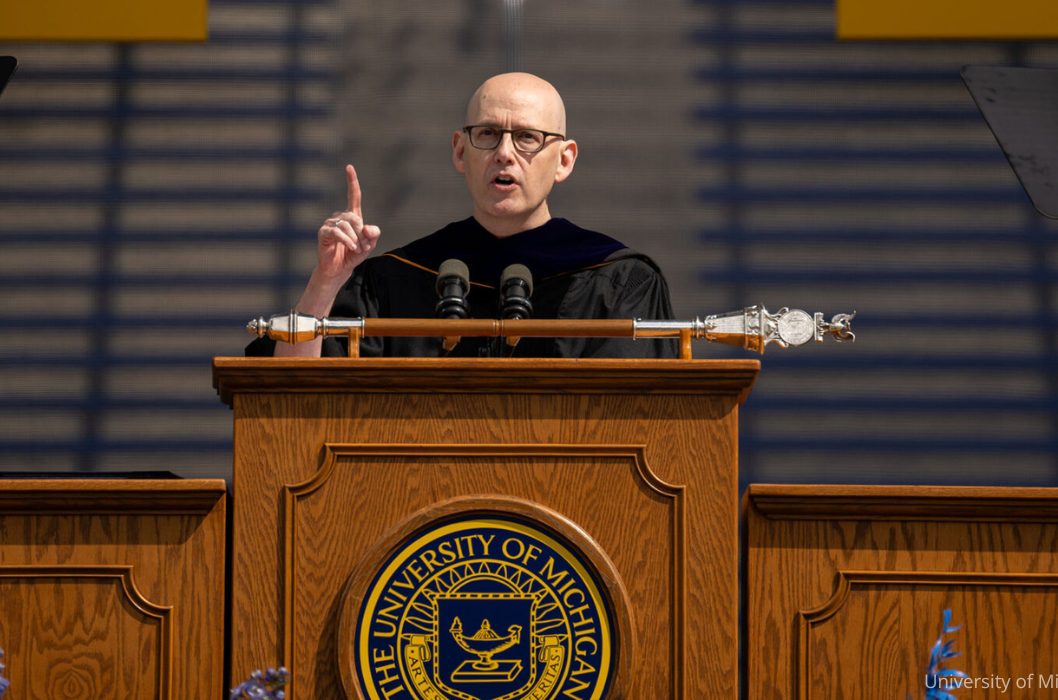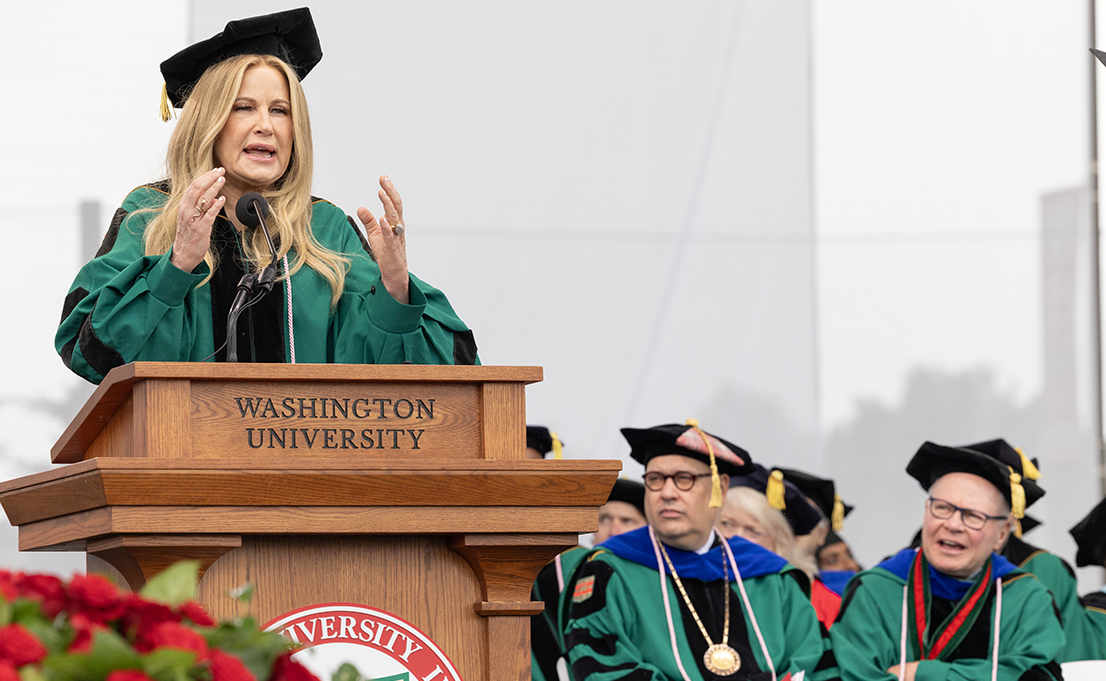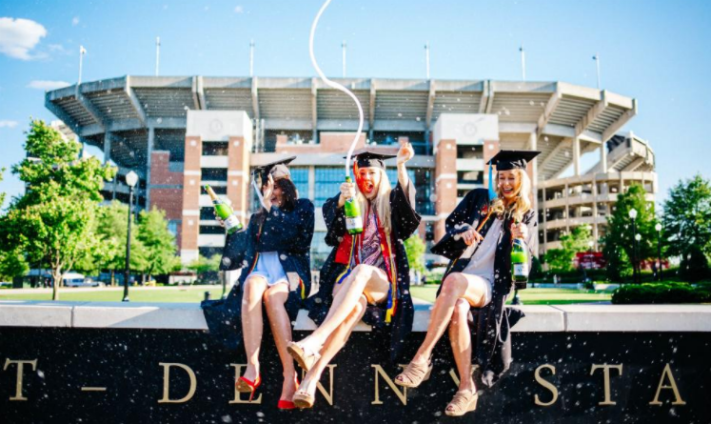A graduation tradition in the U.S., the commencement speech is a key part of the annual commencement ceremonies which take place each May at American universities.
Presidents’ current and former, Nobel Prize winners and CEOs have all inspired graduates with their words, which in the grand tradition of commencement speeches, are designed to entertain, educate and inform. Each speaker will use anecdotes and advice from their own life, imparting wisdom on young graduates as they head out into the world.
Some are ultimately forgettable, some are famous. In 1963, John F Kennedy urged students to think about world peace, in his speech at American University.
“Too many of us think it is impossible,” he said. “Too many think it unreal. But that is a dangerous, defeatist belief. It leads to the conclusion that war is inevitable — that mankind is doomed — that we are gripped by forces we cannot control.”
Given the upheaval across the globe today, this message still resonates deeply.
In 1996, journalist and filmmaker Norah Ephron had a specific message for female students at Wellesley College. “Maybe young women don’t wonder whether they can have it all any longer, but in case any of you are wondering, of course you can have it all.”
And in 2005, Apple founder Steve Jobs gave a speech heavily informed by his own diagnosis of pancreatic cancer. “Remembering that you are going to die is the best way I know to avoid the trap of thinking you have something to lose”.
He added, “The only way to do great work is to love what you do,” he said. “If you haven’t found it yet, keep looking. Don’t settle. As with all matters of the heart, you’ll know when you find it”.
That was then, this is now
Of this year’s crop of commencement speeches, perhaps it was Harrison Butker’s misogynistic take that garnered most column inches.
Butker, a kicker with the Kansas City Chiefs, told students that Pride month is a “deadly sin” and conceded that while some women in the audience would have successful careers, he said that the majority should be “most excited about your marriage and the children you will bring into this world”.
So what else was said at this year’s speeches, and what can we learn from them about the world of work?
-
Talent isn’t everything
Tennis star Roger Federer recently delivered a commencement address at Dartmouth College, where he covered a number of things that are relevant to the workplace. “Yes, you stand alone on your side of the net, but your success depends on your team”, was one of his salient pieces of advice.
He also said that “Yes, talent matters. I’m not going to stand here and tell you it doesn’t. But talent has a broad definition. Most of the time, it’s not about having a gift; it’s about having grit.
“This mindset is really crucial because it frees you to fully commit to the next point, and the next point after that, with intensity, clarity, and focus. The truth is, whatever game you play in life, sometimes you’re going to lose a point, a match, a season, a job.
“It’s a rollercoaster with many ups and downs, and it’s natural when you’re down to doubt yourself and to feel sorry for yourself. And, by the way, your opponents have self-doubt, too. Don’t ever forget that. But negative energy is wasted energy.”
2. Seize the moment
At the University of Pennsylvania, Siddhartha Mukherjee gave the institution’s 268th commencement speech, and spoke about something that terminally ill patients often say. “The lesson that we can learn from dying that we can also apply to life, and to living,” he said, saying that people should not wait to express what they really want to say.
“Don’t wait”, Mukherjee says. “Dare to return love and forgiveness to an unforgiving, unforgiven world.”
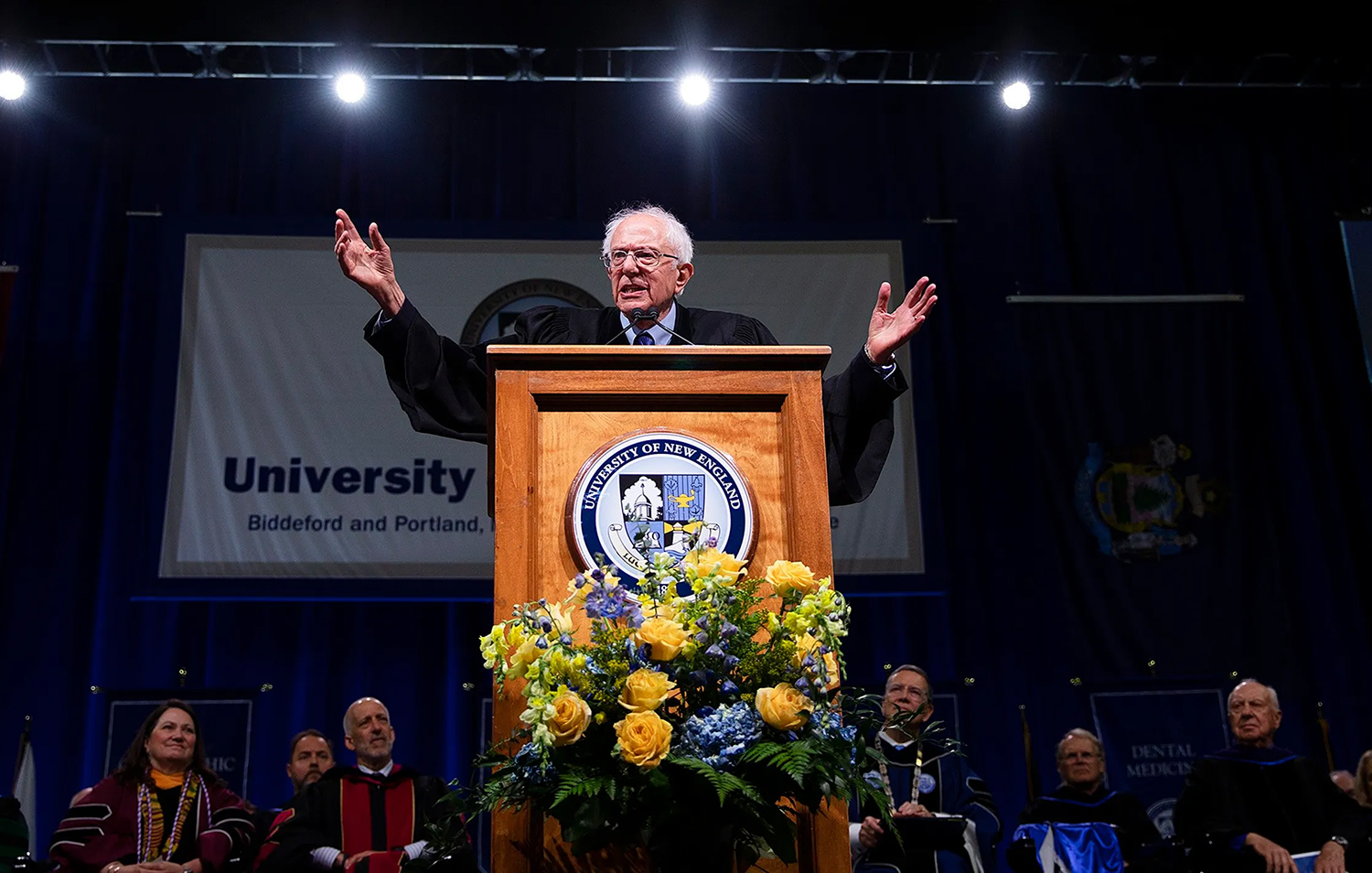 3. Make change
3. Make change
On May 18, Bernie Sanders spoke at The University of New England’s 189th commencement ceremony. The U.S. senator urged the student body to be the face of change.
“You are entering the workforce at a very difficult time in American history,” he said. “But we are depending on you, with full confidence, that you are going to have the strength, the energy, the vision, and the morality that will turn this nation around and make it the beautiful nation that we know it can become.”
4. Make sure your dreams matter
Students are often urged to follow their dreams, but as Harvey Mudd’s commencement speaker, Grant Sanderson said in his speech, “if you have a passion that you want to incorporate into a career, take a step back and recognise the fact that the cliché to follow your dreams overlooks how critical it is that the dreams you have are about something more than just yourself.”
The maths YouTuber added, “for some people, when you hear the words ‘follow your dreams,’ it falls flat because you don’t have a defining passion. That’s completely OK. I think you’ll do just as well if you start by seeking out opportunities where the skills that you’ve developed here intersect with adding value to others, and from there, I promise the passion will follow.”
5. Practice dual promotion
Author Brad Meltzer gave the commencement address at the University of Michigan this year. He espoused the value of bigging each other up. “Something happened when I got that unconditional support,” he said.
It’s great advice for the workplace.
“When someone you trust sees your potential, and says they believe you can be that person, it opens up a path. It inspires you to become that version of yourself. That’s why the friends you’re sitting next to right now matter. Hold tight to them. Their love and trust are key ingredients because when you leave here, your mission is to make the best version of you appear and then watch, surprise yourself. Build something that can’t be ignored. We’ll be the ones cheering.”
6. You don’t have to have it all worked out
Actress Jennifer Coolidge gave the address at Washington University in St. Louis this year. She told students that they should “dare to be what you really want to be.”
And she reminded them that they don’t have to know everything now. “You don’t have to leave here today and … have it all figured out. I didn’t, and … maybe the delays sort of helped me in some way. Maybe I’m actually truer to myself because I had so many things that were disappointing. And enduring them somehow … is sort of like you’re invisibly training for something really cool.”
Want more like this?
If you enjoyed what you’ve read above, and would like to get original work-related content on your own website, plus the chance to maximise your revenue, contact us now.

